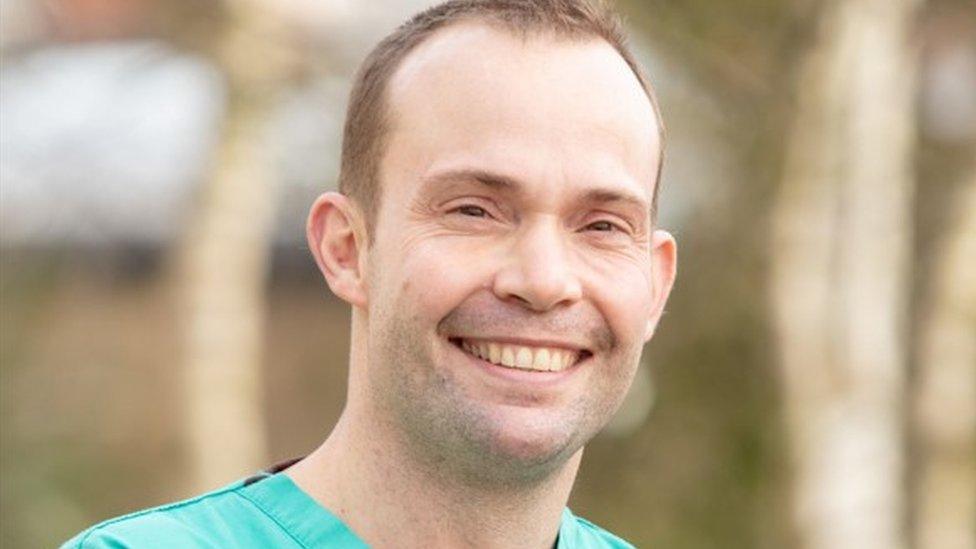New research launched into prostate cancer in Nottingham
- Published

Consultant Will Green said there was an urgent need to improve diagnosis
A hospital trust is launching a study into prostate cancer that aims to pinpoint the degree of risk during the progression of the disease.
Nottingham University Hospital (NUH) said it hoped the PUR (Prostate Urine Risk) study would help identify the best time for medical intervention.
Consultant Will Green said there was an urgent need to improve diagnosis and predicting outcomes for patients.
The study is based on research from the University of East Anglia.
'Important step'
Mr Green, a consultant urologist and principal investigator for the PUR study at NUH, said: "The dilemma for patients who are regarded as having 'low risk' prostate cancer is when to intervene.
"Most patients with low-risk prostate cancer demonstrate a disease process with a slow progression but some will progress unexpectedly and we need to identify them in the most efficient way possible.
"As prostate cancer is the most prevalent type of cancer in men in the UK, this makes it even more important."
He said that, at present, men regarded as low risk were determined by something called the Gleason score which is used to predict the level of aggressiveness of their cancer.
Mr Green added: "However, prostate cancer is very complex and risk levels vary widely between each man.
"There is an urgent need for improvements in diagnosis and predicting outcomes for patients with prostate cancer."
He said that following the pilot study in East Anglia, the trust was now recruiting patients for a further trial to show which men considered at intermediate risk might require treatment more quickly.
Dr Hayley Luxton, research impact manager at Prostate Cancer UK, said: "We're delighted to have supported this research with funding from Movember, which may provide a simple, non-invasive way of predicting the aggressiveness of prostate cancer without the need for biopsy.
"This trial opening for recruitment in Nottingham is an important step forward.
"We hope that one day this could prevent men from undergoing unnecessary tests and treatments that cause more harm than good."

Follow BBC East Midlands on Facebook, external, on Twitter, external, or on Instagram, external. Send your story ideas to eastmidsnews@bbc.co.uk, external.